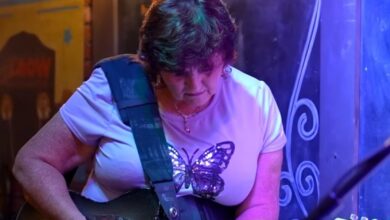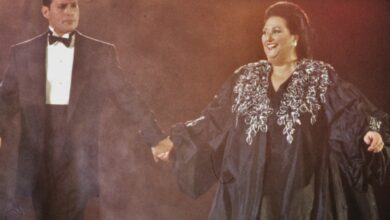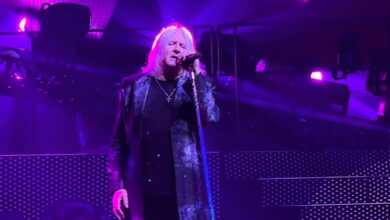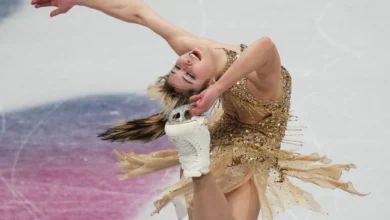Ann Wilson’s “Stairway to Heaven”: The Tribute Performance That Brought Led Zeppelin to Tears
Ann Wilson’s soaring rendition of “Stairway to Heaven” at the 2012 Kennedy Center Honors has become the stuff of classic-rock folklore, the sort of musical moment fans trade stories about the way hikers swap tales of summiting Everest. Performed on December 2, 2012 (and televised later that month), the tribute not only celebrated Led Zeppelin’s legacy in the presence of U.S. President Barack Obama but also revealed—before a global audience—the raw emotional current still coursing through a song first released more than forty years earlier.
When Jimmy Page and Robert Plant wrote “Stairway to Heaven” in 1971, they imagined an eight-minute spiritual quest that blossomed from acoustic introspection into electric transcendence. Over decades, that structure became a rite of passage for countless guitarists, a radio staple, and a shorthand for rock’s lofty ambitions. By 2012, however, many doubted anyone could approach its mystique without inviting unfavorable comparison—or worse, outright dismissal as karaoke hubris.
Enter Ann Wilson, whose career fronting Heart had long been twined with Zep’s influence. As teenagers, Ann and sister Nancy cut their teeth attempting Page’s intricate riffs and Plant’s high-wire vocals. Heart’s early sets included “Rock and Roll” covers, and Ann’s own powerhouse range drew constant comparisons to Plant. That lifelong kinship with Zeppelin’s catalog made her the natural choice when the Kennedy Center Honors producers began searching for a vocalist capable of meeting the moment rather than merely surviving it.
Behind the scenes, arranger and musical director Rob Mathes plotted a version designed to build gradually—much like the original—yet feel wholly new. Nancy Wilson would open on a 12-string acoustic, alone on the vast stage. Ann would wait in the wings, unseen, until the inevitable crescendo beckoned her forward. To anchor the tribute firmly in Zeppelin lore, drummer Jason Bonham—son of the late John Bonham—was recruited, his black bowler hat a visual nod to his father’s swagger.
Rehearsals proved electric. Ann reportedly nailed the climactic high note on her very first pass, leaving seasoned session players exchanging silent, bug-eyed grins. Yet she insisted on more takes, fine-tuning vowel shapes so the lyric’s mystical imagery landed with conversational intimacy. Producer Don Was, present as an advisor, later remarked that hearing Ann shape those phrases was “like watching a sculptor chip away marble until a familiar face emerged.”
The evening of the Honors, the John F. Kennedy Center Opera House hushed as Nancy struck the opening chords. Dignitaries leaned forward; Jimmy Page’s eyes narrowed in anticipation. When Ann finally strode onstage—dressed in black, microphone held low—the audience realized they were witnessing a high-wire act without a safety net. Each syllable carried the tension of history; each breath suggested the possibility of glorious collapse.
The performance’s pivot point came when a gospel choir filed in behind the band, robes shimmering under stage lights. Their entrance transformed the song’s mystical ascent into a communal exaltation, suggesting that every listener’s personal journey might converge at the summit. Jason Bonham, pounding his father’s parts with studied grace, glanced skyward during the solo as if seeking paternal approval.
By the time the choir repeated “And as we wind on down the road,” the camera cut to the Zeppelin box. Robert Plant’s eyes glistened; Jimmy Page clutched the lapel of his tux as though steadying a heartbeat. John Paul Jones smiled the kind of smile only old bandmates recognize—a silent “Can you believe this?” exchanged across decades of shared memory.
When Ann nailed the climactic “And she’s buying a stairway to heaven,” the final chord rang out like cathedral bells. Plant, famously stoic, wiped away tears. The camera lingered on him for a beat that felt almost ceremonial—a tacit passing of the torch from legends to those they had inspired.
Within days of the telecast, the performance rocketed past four million YouTube views, then ten, then fifty. Fans marveled at the pristine vocal; critics praised its restraint, noting Ann avoided Plant’s exact phrasing in favor of her own soulful turns. Heart quickly released the track on iTunes, donating proceeds to the Kennedy Center’s arts-education programs, ensuring the tribute continued giving long after the applause faded.
Robert Plant later called the rendition “magnificent,” admitting it gave him “a chill of total joy.” That endorsement ended any lingering debate about whether “Stairway” should ever be covered publicly. If the song were a sacred text, Ann had just delivered its definitive liturgy.
For Ann Wilson, the night marked a late-career renaissance. Her solo tours began drawing younger crowds eager to witness the voice that moved Zeppelin to tears. She added “Stairway” to her set lists sparingly, treating it like a delicate heirloom brought out only on special occasions. Each reprise carried the weight of that night in Washington, echoing through theaters from Seattle to Sydney.
The performance also reignited debates about the place of women in classic-rock mythology. Ann’s command of a composition long framed as a masculine triumph recharted the narrative, proving once and for all that vocal power knows no gender. Young singers posted reaction videos dissecting her breath control and vowel placement, while guitar forums lit up with analyses of Nancy’s alternate voicings.
More broadly, the Kennedy Center tribute illustrated the song’s elasticity. By fusing folk delicacy, arena bombast, and gospel exuberance, the arrangement reframed “Stairway” as a collective hymn rather than a solo pilgrimage. Future covers—from orchestral versions to ukulele buskers—would owe an unspoken debt to the Wilsons’ template.
Over a decade later, the clip still trends anew whenever social media algorithms rediscover its alchemy. It plays at weddings, memorials, and late-night living-room gatherings where friends pass laptops around like campfire guitars. Each new viewing replays the arc: anticipation, crescendo, catharsis, shared silence.
Ultimately, Ann Wilson’s “Stairway to Heaven” endures because it threaded a nearly impossible needle—honoring Led Zeppelin’s monumental creation while revealing an extra chamber of its heart. In just over six awe-struck minutes, Ann, Nancy, Jason, and a choir of strangers built a bridge between the mythic past and the ever-renewing present, reminding us that some songs don’t merely survive the passage of time—they teach us how to climb it.





